Overseas intellectuals not only give suggestions or solutions, methods of implementation, but also candid and multi-dimensional perspectives on strengths and limitations in developing potential fields of the country.
Responding to the call of Prime Minister Pham Minh Chinh , overseas intellectuals not only put forward proposals or solutions, implementation methods, but also candid, multi-dimensional perspectives on the strengths and limitations in developing the country's potential fields on the path of rapid, sustainable development and international integration.
Opportunities with artificial intelligence
Born in Hue and leaving his hometown to study abroad at the age of 19, Mr. Le Viet Quoc (American expatriate) has lived abroad for 23 years.
That means Dr. Quoc has been abroad for longer than he has lived in Vietnam. However, in his dreams, the image of Vietnam is always present, urging him to do “something” for his homeland. And he started to do it from his own expertise – giving advice in the field of AI.
Dr. Le Viet Quoc’s journey with artificial intelligence began in 2004 and he is currently an Artificial Intelligence (AI) Researcher at Google Corporation. His passion for science was ignited in him since childhood and he realized that artificial intelligence is the key to unlocking future revolutions.
“Using AI to create vaccines against cancer or develop more efficient materials for solar energy. These are just a few of the countless examples of the limitless potential of AI,” said Dr. Le Viet Quoc.
Dr. Le Viet Quoc suggested that Vietnam should recognize that the artificial intelligence revolution is taking place as an underground wave and in the next decade, this will be a big challenge when many traditional jobs are automated.
“However, this is also a huge opportunity for Vietnam. While many other countries continue to be bound by current jobs, Vietnam can move forward and develop with artificial intelligence,” said Mr. Le Viet Quoc.
In the general development trend of the artificial intelligence industry, to turn challenges into opportunities, Dr. Le Viet Quoc believes that the greatest asset is people, therefore, we should invest heavily in artificial intelligence education, especially at the university level. Vietnam should build an Asian-class university in artificial intelligence with specialized training programs right from the beginning.
“After investing in people, we need to find ways to utilize high-quality human resources. The best way to do this is to invest in the innovation and startup ecosystem. Experience shows that in every revolution, there are winners and losers, and the most effective way to find winners is to create a diverse and strong startup ecosystem,” said Mr. Le Viet Quoc.
Along with that, Vietnam should focus on strongly developing applications of artificial intelligence.
In the 21st century, artificial intelligence will be an important tool, those who come later will be left behind. However, today, many artificial intelligence software are being provided as open source, opening up huge opportunities for applications in the near future.
Vietnam needs to set ambitious national goals, applying artificial intelligence in areas such as public health, transportation and many others.
Mr. Quoc also proposed the establishment of a high-level advisory council on chips and artificial intelligence – fields that are developing at a dizzying speed, to advise on making quick and accurate decisions in these key areas.
Ready to welcome the new wave of investment
Participating in giving advice related to the packaging and testing industry, Mr. Duong Minh Tien (overseas Vietnamese in Korea) commented that Vietnam is considered a place to attract investment in the chip packaging sector, so it is necessary to prepare resources to be ready to welcome the investment wave of the packaging sector in the next 5-10 years.

“In recent years, Vietnam has successfully attracted large electronics companies to invest in chip packaging and substrates (semiconductor chip substrates), specifically Intel, Samsung, Amkor, Hana Micron… This is also the basis for improving the experience of Vietnamese human resources in the chip manufacturing industry as well as developing local suppliers,” said Mr. Duong Minh Tien.
According to Mr. Tien, Vietnam should take advantage of some special advantages to diversify investment attraction. In addition, its geographical location near China's "silicon valley" (Guangzhou-Shenzhen-Dongguan) is very suitable for the China+1 strategy of large companies to reduce geopolitical risks and trade wars.
In addition, Vietnam has many free trade agreements and strategic partnerships with technology powers so that Vietnamese goods receive tax incentives when exported to major markets; taking advantage of this opportunity to reduce administrative procedures, decentralize to the grassroots to make production, business and investment expansion of large enterprises more convenient.
Opportunities for development of the microchip industry
Sharing experiences in developing the semiconductor industry in Japan, Korea, Taiwan (China), Mr. Nguyen Ngoc Mai Khanh (overseas Vietnamese in Japan), semiconductor product development expert, Samsung Group, said that the global microchip industry is facing many challenges due to industrial shifts, geopolitical tensions and the concentration of supply chains in some specific areas.
In Vietnam, the microchip industry is currently at the processing stage and lacks a technical team capable of mastering finished products. However, with a large population and the Government's digital transformation orientation, Vietnam has a great opportunity to develop this industry.
Recommending some proposals to develop this industry in Vietnam, Mr. Nguyen Ngoc Mai Khanh emphasized the development of human resources. Accordingly, it is necessary to strengthen the training of microchip engineers; build an online training platform for this industry; establish specialized training centers; have policies to attract and retain talent...
Along with that is focusing on design, packaging and testing; investing in Analog and high-speed microcircuit design (a field suitable for the capacity and creativity of Vietnamese youth and students, especially related to Math and Physics); supporting copyright and intellectual property and synchronous cooperation between technology corporations and institutes and universities...
Sharing the same view, Ms. Nguyen Thi Van Anh, an overseas Vietnamese in Japan, Assistant Professor at Tohoku University, Japan, said that Vietnam is almost at the R&D stage (initial level), but has the potential to develop chip design well and has the potential to supply rare earth materials. Vietnam needs to meet the requirements of infrastructure; prepare a suitable supply chain and good human resources.
“If we sign memoranda of understanding with Japan, Vietnamese students can come to study and research at schools or companies in Japan; thereby promoting valuable strengths,” Ms. Nguyen Thi Van Anh suggested.
Vietnamplus.vn
Source: https://www.vietnamplus.vn/tri-thuc-kieu-bao-hien-ke-phat-trien-dat-nuoc-post973862.vnp


![[Photo] Students of Binh Minh Primary School enjoy the full moon festival, receiving the joys of childhood](https://vphoto.vietnam.vn/thumb/1200x675/vietnam/resource/IMAGE/2025/10/3/8cf8abef22fe4471be400a818912cb85)


![[Photo] Prime Minister Pham Minh Chinh chairs meeting to deploy overcoming consequences of storm No. 10](https://vphoto.vietnam.vn/thumb/1200x675/vietnam/resource/IMAGE/2025/10/3/544f420dcc844463898fcbef46247d16)


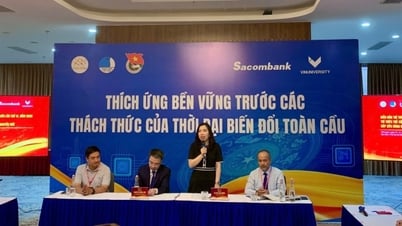



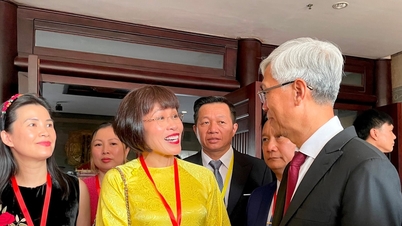
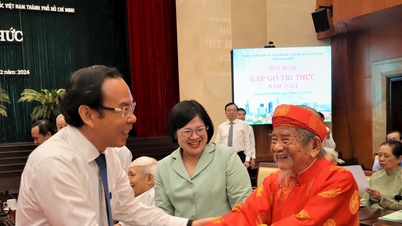
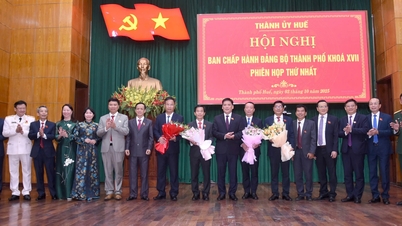

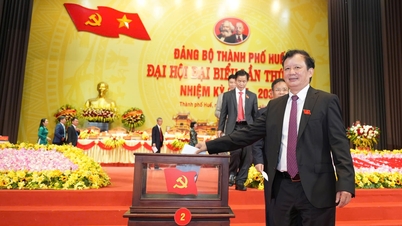
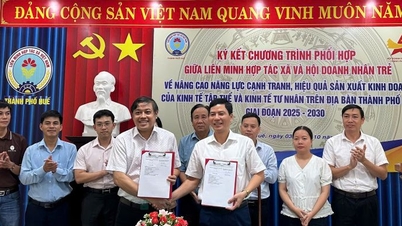
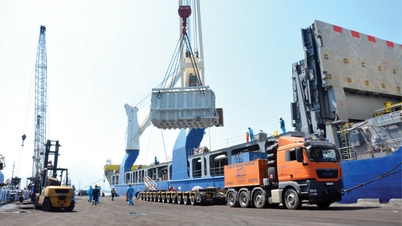

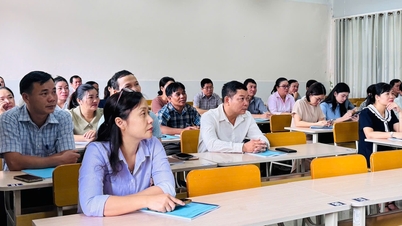




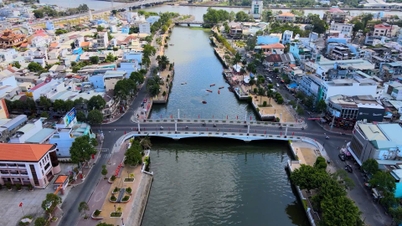
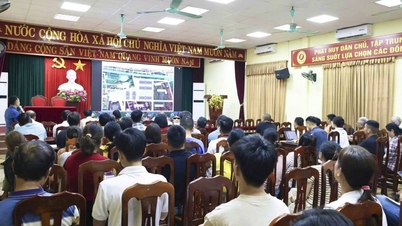
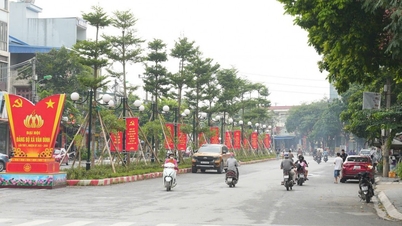
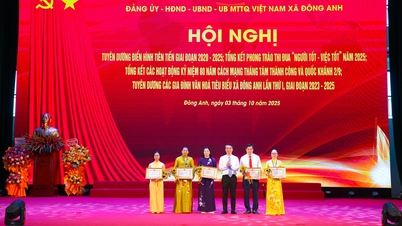
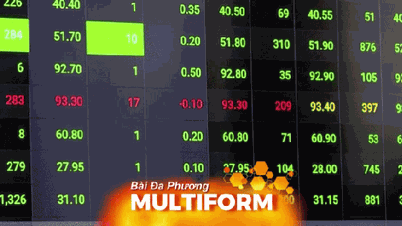
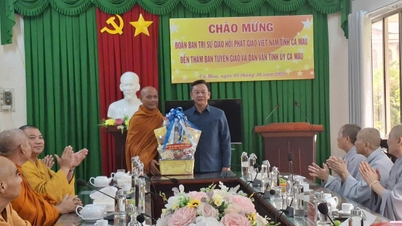





















































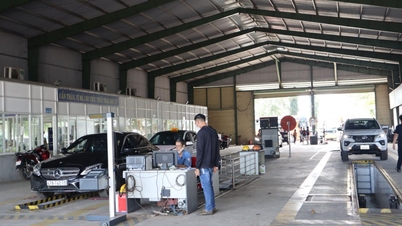



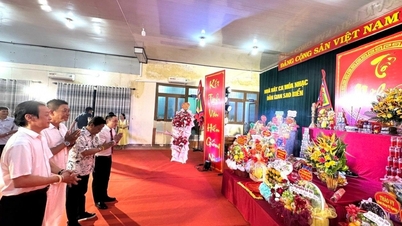












Comment (0)